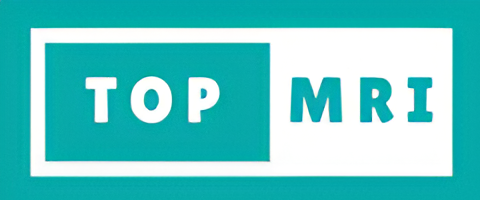
- Home
- Services
- Locations
- MRI Scan
- Greater London Area
- London – Marylebone, W1G 7HE – 3.0 T MRI Scan – £300
- London – Harley Street, W1U 2HX – Open MRI Scan – £500
- Middlesex – Enfield, EN2 8JL – 1.5 T MRI Scan – £300
- West Middlesex – Isleworth, TW7 6AF – 1.5 T MRI Scan – £300
- Surrey – Epsom, KT18 7LX – 1.5 T MRI Scan – £300
- Surrey – Ashford, TW13 3AA – 1.5 T MRI Scan – £300
- Surrey – Guildford, GU2 7XU – 3.0 T MRI Scan – £300
- Kent – Sidcup, Bexley, DA14 6LT – 1.5 T MRI Scan – £300
- North West England
- Manchester – M80 4AN – Open MRI Scan – £500
- Greater Manchester – Manchester, SK8 7NB – 1.5 T MRI Scan – £279
- Greater Manchester – Whythenshaw, M23 9LT – 3.0 T MRI Scan – £300
- Greater Manchester – Stockport, SK2 7JE – 1.5 T MRI Scan – £300
- Cumbria – Cockermouth, CA13 9HT – 1.5 T MRI Scan – £279
- Cumbria – Penrith, CA11 0AH – 1.5 T MRI Scan – £279
- Lancashire – Preston, PR4 0AP – 1.5 T MRI Scan – £279
- Lancashire – Fylde, FY8 1PF – 1.5 T MRI – £300
- North East England
- East Midlands
- East of England
- West Midlands
- South West England
- South East England
- Wales
- Yorkshire and the Humber
- Greater London Area
- CT Scan
- Full Body MRI Scan
- Ultrasound
- MRI Scan
- Patients
- Referrers
- Prices
- 0333 344 1811
info@topmri.com
Mouth Cancer
- Uncategorized
-
Sep 18
- Share post
Mouth Cancer: Symptoms, Causes, Diagnosis, Treatment, and Future Outlook.
Disclaimer:
This blog is for informational purposes only and should not be taken as medical advice. Content is sourced from third parties, and we do not guarantee accuracy or accept any liability for its use. Always consult a qualified healthcare professional for medical guidance.
What is Mouth Cancer?
Mouth cancer, or oral cancer, affects the lips, tongue, gums, floor/roof of mouth, inner cheeks, or tonsils, mostly squamous cell carcinoma (90%). Stages I-IV, with early often curable. In 2025, ~54,000 US cases, more in men, linked to tobacco/alcohol.
Symptoms
Symptoms include persistent mouth sores/lumps, white/red patches (leukoplakia/erythroplakia), pain/swallowing difficulty, ear pain, loose teeth, numb chin, voice changes, weight loss, swollen nodes. Advanced causes bleeding or neck masses.
Causes
Tobacco (smoking/chewing, 75% of cases), heavy alcohol, HPV (oropharyngeal, types 16/18), betel nut, poor oral hygiene, sun exposure (lip), and genetics. In 2025, HPV causes 70% oropharyngeal cancers.
Diagnosis
Diagnosis uses oral exam, biopsy, imaging (CT/MRI/PET), and HPV testing. Staging TNM. In 2025, AI oral scans improve detection.
Treatment
Surgery removes tumor/margins/nodes, with reconstruction. Radiation/chemotherapy adjuvant. Targeted (cetuximab) for EGFR+, immunotherapy for advanced. In 2025, de-escalation for HPV+ reduces toxicity.
Future Outlook
In 2025, 5-year survival 65% overall, 85% localized. HPV vaccination reduces incidence. By 2030, immunotherapies could achieve 75% survival.
Sources
Mayo Clinic’s “Mouth cancer – Symptoms and causes” for symptoms; Cleveland Clinic’s “Oral Cancer (Mouth Cancer): Symptoms, Causes & Treatment” for treatment; NCI’s “Oral Cavity and Oropharyngeal Cancer Treatment” for prognosis; PMC’s “Oral Cancer: Update on Diagnosis and Treatment” for updates; OncoDaily’s “Oral Cancer: Symptoms, Diagnosis, Treatment” for details; Cancer Research UK’s “Mouth cancer” for research; American Cancer Society’s “Oral Cavity and Oropharyngeal Cancer” for statistics; WebMD’s “Oral Cancer” for overview; Healthline’s “Oral Cancer: Symptoms, Causes, Treatments” for causes; Mouth Cancer Foundation’s “Mouth Cancer” for awareness.